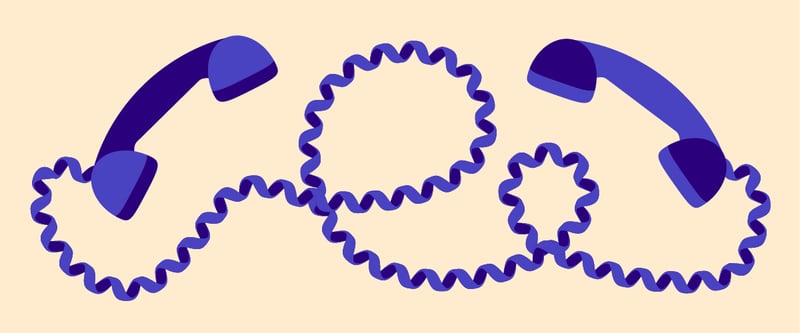After you’ve defined what an ideal position looks like for you, you move into the application stage of the job hunt. Job descriptions and company profiles can be very telling, but there is still more to learn before you can confidently decide if a job is right for you, and you can gather that information by asking the right questions during the interview phase.
So, when a recruiter reaches out wanting to discuss an opportunity with you, make the most of the conversation by asking mindful questions that will help you decide whether or not you want to continue pursuing this position. From there, you can ask more in-depth questions with each interview stage to find out if it’s the right fit for you.

Remember, you are interviewing the company just as much as they are interviewing you. For the job to work out, it needs to be a good fit all around. By asking these pointed questions, you’re not only saving yourself some time, you’re also doing the company a favor by not wasting their time interviewing a candidate that ultimately won’t be interested. If it’s not a right fit, the sooner you know, the better for everyone involved.
Phone interview
A phone screen isn’t technically an interview, but it’s your way of getting through the gatekeeper, usually a recruiter, to the hiring manager. During this stage, the recruiter will probably ask you some qualifier questions about your background and give you a rundown of the position. Be sure that you are as clear as possible on the role and its responsibilities before ending the call though. So if the recruiter doesn’t give you a clear rundown of the position, ask for one.
Even though this (probably) isn’t the person you’d report to if you were to take this job, they will know the answers to some of the general questions you might still have for the role. (Note: if this is not just a screening call and you are talking to a hiring manager, you should add in some of the questions from the first interview section below.)

Some of the questions you can ask at this point include:
- When do you want someone to start in this role?
- What qualities are you looking for from someone in this role?
- What is the salary range for this position?
- What is the work schedule for this role? Do you offer flex arrangements?
- Is there potential for this job to become full-time/permanent? (if you’re discussing a contract, temporary or part-time role)
- Is there anything I can cover in more detail regarding my qualifications for this role?
- What are the next steps in the interview process?
- When can I expect to hear back from you?
They may not be able to answer every question as thoroughly as you’d like, but that’s okay because if you’re offered a second interview and you decide to take it, you will get more details then.
First interview
Following the initial phone screen, your first interview will most likely be with the hiring manager and possibly a few members of the team you’d be working with. In this round, you’ll be able to get a feel for the company and team culture. You can also use this interview to ask for more details surrounding the workload, schedule and flexibility of the position.
Here are some good questions for the hiring manager:
- How would you describe the responsibilities for this role? And can you speak to the cadence of any regularly scheduled work expectations - things such as recurring meetings, scheduled events, publishing content, and so on - that are required daily/weekly/monthly/etc.?
- How are goals set for success in this role? Are they created for the role or would I have the ability to create them alongside my manager? Or are the goals already predetermined?
- Do you have a quarterly or annual review or some other review timeline?
- How is feedback provided to employees and how often does that happen?
- What qualities in an employee do you think lend themselves to success in this role?
- If this role was previously held by someone else, why are they leaving the role?
- Who does this role report to?
- Are there any career advancement programs at the company?
- Is there anything else you think I should know about this role?
- Is there anything else I can clarify regarding my qualifications or experience?
- Can you tell me about your journey with the company so far?
- What do you like about working for the company?
- What are the next steps in the interview process?
- When can I expect to hear back from you?
This is also an opportunity to ask questions and get more details about benefits, policies and perks.
Interviews with prospective team members
If team members are part of this interview round, don’t hesitate to ask them some questions to help you get a better idea of the work culture, such as:
- Are there team projects or collaboration on a regular basis?
- What does a typical day look like for you?
- Have you had any opportunities to grow professionally within your role or the company that you can share with me?
- What do you enjoy most about your job?
You most likely won’t have a chance to ask all of these questions so be thoughtful about which are most important to you. You can also ask a question or two in your thank you email if you don’t get to one that you really wanted to cover.
If you are moving forward after this round of interviews you should ask the recruiter once your next interview is scheduled, if you’re able to get a copy of the company’s benefits summary so you have time to review it, and prepare questions for the next round of interviews, if necessary.
Second interview
Not every job will have multiple rounds of interviews, but if this one does, at this point you’re likely meeting with some of the hiring manager’s team, peers and/or supervisors. This round will feel a little more formal, and by this time, you probably have a good sense of whether or not you want to pursue this role, but you can still use this as an opportunity to get a different perspective on the company’s culture and learn about long-term growth plans with questions like:
- What are some of the goals the team (or company) is working toward right now?
- What do you look for in an employee? (if you’re interviewing with a higher-up since you probably already asked the hiring manager this question in your previous interview)
- Are there opportunities for growth in this position?
- Do you provide any type of continuous training for employees?
- How often does the company promote from within?
- What are the next steps in the interview process?
- When can I expect to hear back from you?
- Are there any other questions I can answer for you?
This isn’t the interview to ask nitty-gritty questions, but big picture things are fair game. This interview will help you get a sense of the company’s overall direction and how this role fits into it.
Moving forward
At any point in the interview process, if you decide this just isn’t the right fit for you, you can politely decline future requests by letting the recruiter know you’re withdrawing your application. You don’t need to defend or apologize for this decision, simply thank them for the opportunity and move on.
If, however, you do think this position could be a good fit and you’re presented with an offer letter, carefully evaluate the offer and ask clarifying questions as needed so you can move forward with confidence.
Remember, every interview has two sides, and you have just as much authority to ask your own qualifying questions as the person interviewing you does. Think of this as a level playing field because you all have the same goal—to find the right fit.
 Finding the Best Career Move for You
Finding the Best Career Move for You
Considering a career move? Ask yourself these questions during your career search to determine if a job opportunity is the right fit for you and your needs.
Get support throughout your journey
Get access to career opportunities with family-friendly employers, job search and career development resources, and a thriving community of moms and allies with The Mom Project. 



